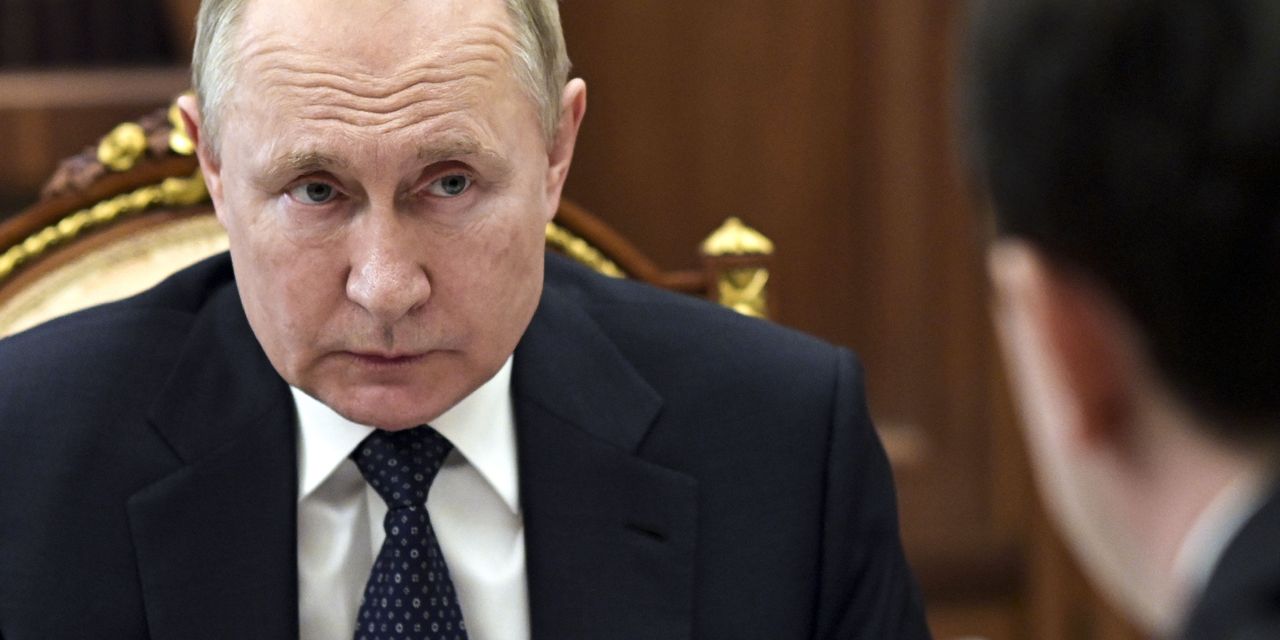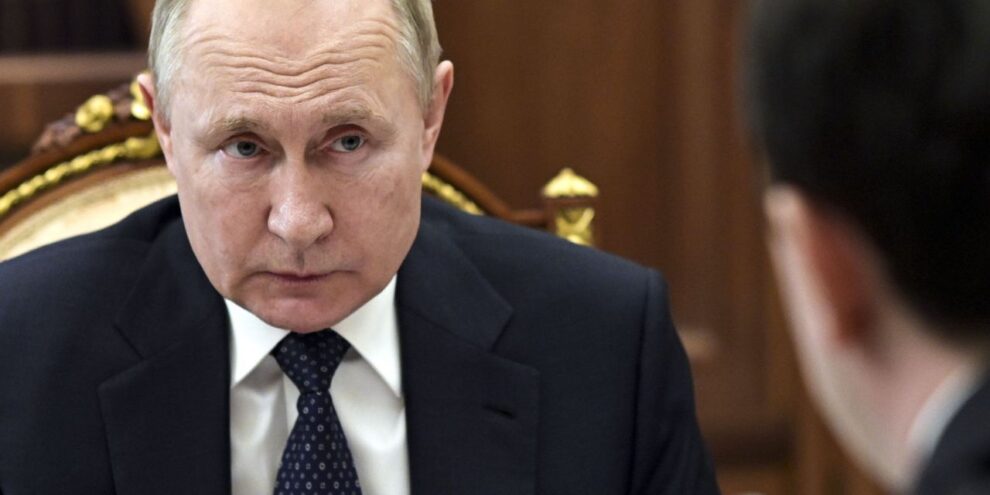
I am seeing opinion pieces on how heavy sanctions against Russia represent the first economic war in history. It isn’t. It may be another “world war” that is beginning with the imposition of economic sanctions. It is simply too soon to tell. Sanctions have not had a chance to bite. History tells us they do not always get a chance to do that.
We must remember that Japan was drawn into World War II when it was denied oil by the United States. Japan had imported more than 80% of its oil from the U.S. The U.S. then imposed an oil embargo on Japan while that country was at war with China. Japan lost access to oil. That set the clock ticking, and we know how that ended.
Now the idea is to embargo Russia’s sale of oil to the world. And the idea is to shut off Russia from not just raw materials but access to everything, including financial services.
The mirage of victory
Does anyone really think that a personality like Vladimir Putin will put up with that and crawl into a corner and hide while his economy shrivels up around him? That’s not going to happen. And so, if not that, then what? We, the West, need to stop reveling in the expectation of our eventual “win” because “we” will never see it. Sanctions are not a winning strategy — we have already done that and failed.
We are warned by military strategists that Putin will not accept defeat; that Putin will need to gain “something” from this war; that he cannot simply go home defeated. That would lead to the end of his rule. And we know that is unacceptable to him.
We have been warned by military experts that if the war does not go well, Putin will use chemical weapons and perhaps even conjure an excuse to use tactical nuclear weapons.
Putin is a dangerous man. But the Biden administration that has gauged the reaction of Putin wrongly in the past using sanctions may be gauging him wrongly again. Just ask former U.S. Defense Secretary Robert Gates, who said that Biden has “been wrong on nearly every major foreign policy and national security issue over the past four decades.”
Risks of a confrontation
And one problem with imposing sanctions is that there is no battle front. There is no way to know when their bite is drawing blood. And so there is no way to know how the risks of a confrontation with Russia grow as sanctions remain in force.
But just as Biden and Secretary of State Antony Blinken incorrectly told us that the threat of sanctions would keep Putin out of Ukraine, we are now being told that, as long as we do not engage militarily or send too many weapons that are too modern or too destructive, we will not be in his sights. Not only does this increasingly seem naive on the face of it, but any scan of history suggests that sanctions, especially of this magnitude, are the equivalent of bombing a country’s factories and taking them out of action. In some ways they are the equivalent of neutron bomb-destroying economic activity but leaving the capital stock in place. Soon we will see how Putin reacts to that.
The U.S. has an obligation to Ukraine under the Budapest Memorandum, in which the U.S. promised to help Ukraine secure its borders when it gave up its nuclear weapons. In fact, the U.S. has not done that.
What’s worse, Russia, a fellow signatory to the Budapest Memorandum, has been the violator. Russia is invading over the allegation that Ukraine is Russia, and that ethnic Russians living in Ukraine have been targeted; that there is genocide against them; arguing, too, that Ukraine is not a real country.
All this culminated in a pamphlet (discussed here) that has been translated and gives insight to why Ukrainian leaders are called “Nazis.” See the same point made in this NPR news item. This stems from a unique Russian use of the term “Nazi” to refer to ethic Ukrainians who think Ukraine is a separate country from Russia. Really! It is no wonder that people in the West listening to Putin and his ravings are confused.
Once Russia gears up its propaganda machine, there is no stopping it. And it is clever about finding some small fact on which it can hang a big lie or about adopting terminology that makes its actions sound virtuous when they are anything but.
What lies ahead?
I hope this episode with Russia’s lying shocks Americans back to the straight and narrow. Lies and exaggerations only seem to score political points. In the long run they destroy credibility and send people packing to one side of the fence or the other defending the lies of the side they like. But lies are lies, and the damage is done. It is very important to give your best assessment of the facts and to not present distortions as though they are truth. Lies and distortion undercut credibility and credibility is the only ground any nation stands on. Russia lies — even its supporters know it.
But Americans need to tell themselves the truth, too. Sanctions did not stop the invasion of Ukraine as Biden promised. Putin expected sanctions to be soft. But they are not soft. Still, they will not stop his advance overnight, and ending the carnage and killing now is important. The West should do “whatever it can.” In the meantime, it had better not sit back and rely on bad analysis to protect it. The sanctions eventually will be punishing for Russia. I’d be surprised if Putin did not lash out when, or before, that happens.
Putin has already said that sanctions are “akin to a declaration of war,” but he went on to say “but thank God it has not come to that.” Still, it may. Putin has a way of saying something, planting a seed that gets ignored, then coming back to it — beware.
With this in mind, I think the “hot war” should be conducted more aggressively since if the West backs off the hot-war confrontation when Putin eventually threatens nuclear or more aggressive responses to sanctions, then what would the West do? The West must stand strong from the start and not pin its hopes on sanctions, which have let us down once already and will probably do so again.
Robert Brusca is chief economist of FAO Economics.









